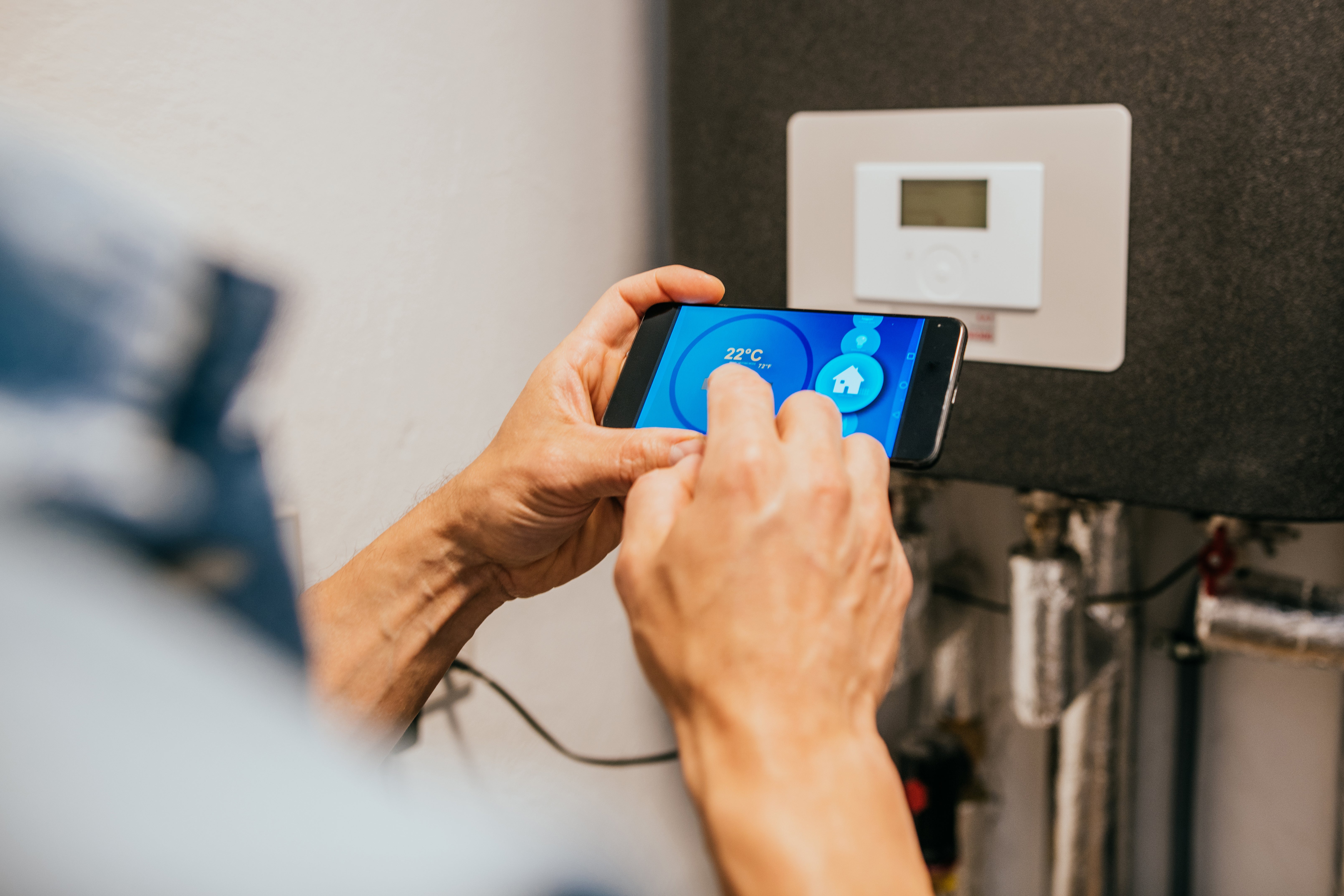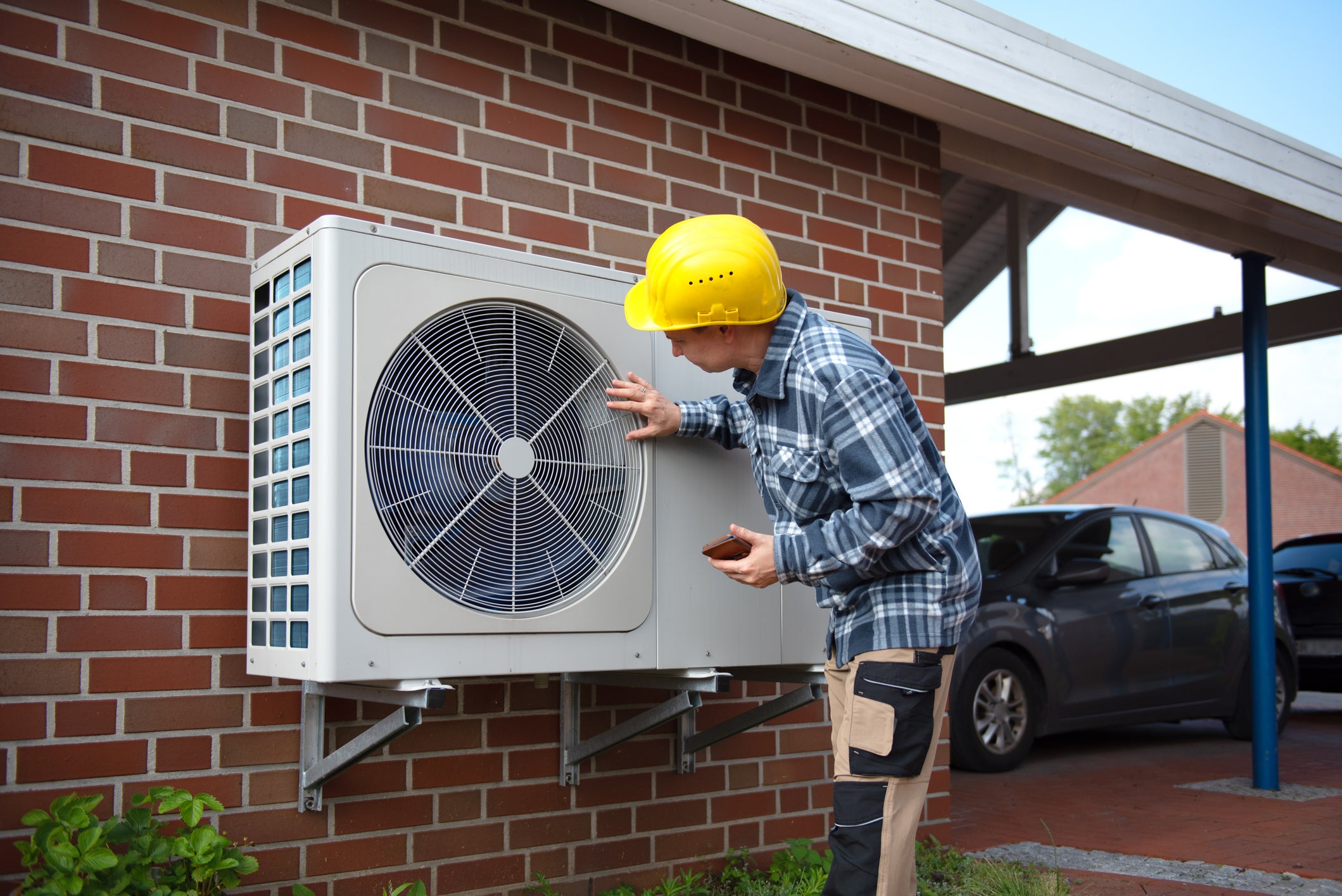“You’re no longer having battles over whether to turn the heating up or off”
The Independent’s tech editor Andrew Griffin sits down with Leah Robson, director of whole house renewables company Your Energy Your Way, to talk all things heat pumps – from modern installations to future innovations

Leah Robson has been working with heat pumps for about 10 years, but when one arrived in her house, she was still surprised. Not by the installation, the process for which she knows intimately, or by the changes that installation brings to your house. Instead, she was surprised by just how comfortable everything was.
“It is a much, much, much more comfortable way to heat your home,” she says, looking back on her now roughly four-year-old heat pump installation. “You have none of that kind of rise and fall, the ‘oh, golly, the gas has gone off, now I’m feeling a bit chilly, I’d better put the heating back on again’.”
“Your house is just at a constant temperature, to the extent that you’d only really notice whether the heating is on or off, and you don’t really know what temperature it is outside. So I have to look at the little display inside the house before I decide whether I need to put on a coat or not, because it’s not clear from inside whether it’s really freezing outside or just cold. And this is in a very ordinary house.”
She likens the experience to a fridge: you don’t worry about whether your fridge needs to be switched off at a given time or whether it is working too hard – you just let it do its thing. A heat pump is much the same: whether it’s cold or hot outside, you can leave it running, and it will stabilise the temperature.

In the years before Leah had her own installation, she had been recommending heat pumps to people because of their efficiency. It made sense: her customers at whole-house renewables company, Your Energy Your Way, were primarily concerned about their environmental impact; the main reason behind the growing interest in the technology is how sustainable they are. But now, she says, she sells people on just how comfortable they are.
That’s not to say they’re inefficient – just the opposite. Current models are between 3-5 times more energy efficient than gas boilers, according to the International Energy Agency. If you are concerned about energy efficiency then they can be a dramatic way to cut the amount of power that your house uses.
Heat pumps are fundamentally more efficient for a fairly simple reason. Unlike a traditional boiler, they aren’t forced to generate heat, they just move it; if your house is too cold, then they bring heat in from the outside, and if it is too hot then it does just the opposite. It is a straightforward theory, but one that brings a profound change in both the efficiency and feel of your house.
There are some drawbacks, she notes. The fact that heat pumps run constantly, rather than just when they are needed, mean that their fans are always whirring around. That sound – which she likens to the steady grumble of a fridge – is not loud but might be off-putting if the unit were next to a bedroom. For those worried about the sound, Nesta, the innovation charity, runs a “visit a heat pump” scheme where people can go and listen to both the sound of the heat pump as well as the experiences of their owners.
The installation can also be a little disruptive, for a little while. For a week or two, you’ll have people moving through the house, and not just to the heat pump: installation requires a few other changes, such as often adding or moving hot water cylinders, which might need access to other parts of the house.

As with other parts of the process, that is likely to change in the years to come. New technologies will make the initial survey easier for installers, she hopes. And at the moment services can be expensive – not because of the complexity, but because the rareness of heat pumps mean that those able to do those services will probably have to come from further away.
Already, however, the installation is not complicated: you find the spot, which is possible even in older houses built before central heating, get the equipment installed and then let it get to work. You might even find that it makes life a little simpler in other ways, too.
“You’re not having battles in the house about whether you’ve got the heating on enough or not,” she says. “You just set it to a temperature and it just keeps it there – that’s the most efficient way to run a heat pump, and the most comfortable.”
Ready to power up your home with E.ON Next’s smart energy tech? Visit E.ON Next to learn more




Bookmark popover
Removed from bookmarks